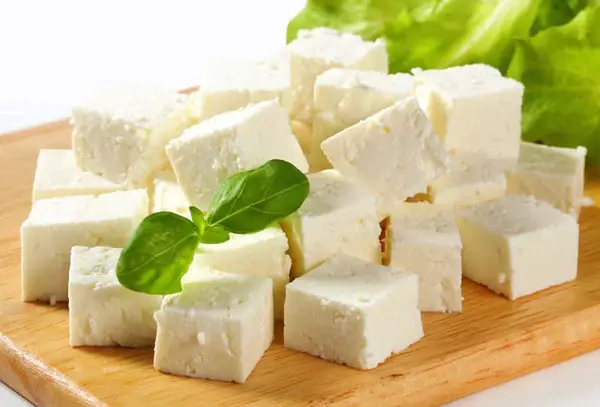Superfoods like açaí, blueberries, and spirulina get a lot of time in the wellness spotlight, thanks to their vibrant color and photogenic qualities.
But what about plain-looking superfoods like mushrooms? Mushrooms never seem to get their share of acclaim, which is unfair, considering they are loaded with nutrients.
These savory, edible fungi are:
- Cholesterol-free
- Low in calories and fat
- High in iron, promoting the growth of red blood cells
- Rich in Vitamin D
- Rich in B-complex vitamins, protecting our nervous systems
Phosphorus, selenium, copper, vitamin D, thiamin, glutathione, magnesium, and ergothioneine are just some of the important nutrients found in mushrooms. Some of these are known to function as antioxidants capable of mitigating oxidative stress, a natural occurrence that contributes to the aging process. [1, 2]
It’s no wonder mushrooms are known to promote a healthy immune system and can even boost bone health.
A Healthy Diet Can Include Pizza
Our Western-style diets (WSD) often feature a lot of fatty foods and high sugar that contribute to Type-2 diabetes, obesity, heart disease, and other chronic health issues.
Particularly, many people claim that eating pizza will make you fat, while others suggest that it’s loaded with carbohydrates that are not good for your blood sugar levels.
So can pizza be part of a healthy diet? The answer is yes — but you have to be careful what toppings you add on top of your pie. You can still have a slice (or two or three) — as long as you don’t throw away the mushrooms.
Mushrooms are among the healthiest foods you can add to your pizza. They’re low in calories and high in fiber, which helps keep you feeling full longer after eating them. Mushrooms also contain plenty of vitamins and minerals.
We need to simplify the complex relationship we have with food and take it to a place where eating healthy feels truly sustainable. Dr. Nandi’s Superfoods Cookbook can help you plan your meals and overcome any obstacles that come in the way of you eating healthy.

The Study on Mushrooms
Medicinal mushrooms have an established history of use in traditional oriental therapies, and the effects of mushrooms, such as suppression of autoimmune diseases and allergies have long been associated with their immunomodulating effects. [3, 4]
Immunomodulators are substances that can help support immune function by modifying, generally in a beneficial way, the immune system’s response to a threat.
Scientific investigations have been performed to discover if mushrooms could help treat or manage diseases like asthma, atopic dermatitis, rheumatoid arthritis, atherosclerosis, hyperglycemia, thrombosis, human immunodeficiency virus (HIV) infection, listeriosis, tuberculosis, and septic shock.
One particular study by researchers at the University of Massachusetts Amherst looks at how modifiable factors like diet and lifestyle, as well as metabolically related gene variants, interact to influence the development of diseases. [3]
Zhenhua Liu, an associate professor at the School of Public Health and Health Sciences, received a grant from the US Department of Agriculture (USDA) to complete the research.
His team set out to concentrate on identifying metabolic targets that could be used to prevent or treat obesity and insulin resistance. The study examined the cellular and molecular mechanisms by which the common oyster mushroom improves gut health.
In previous research, scientists had found that a rarely studied bacterium, Turicibacter, is almost completely depleted by high-fat diet-induced obesity, but not genetic obesity.
The team examined the mushroom’s interaction with Turicibacter in Western-style diet-related intestinal dysfunction and the effect it has on reshaping gut microbiomes.
They found that sun-dried oyster mushrooms possess multiple nutrients lacking in the Western-style diet, such as dietary fiber and vitamin D.
“Intestinal dysfunction is thought to be one of the underlying mechanisms that contribute so significantly to the development of WSD-related diseases,” said Liu.
This research provides important insights into mushrooms as a whole-food approach to improving gut health. He also believes mushrooms are the perfect supplements and natural whole foods to raise the quality of Western-style diets.
Supplements like Fiber Complete can also help supply the fiber your body needs to regulate bowel function, blood sugar, and cholesterol. Get it from the Health Hero Pharmacy today.
Mushroom Cultivation
Quality control of mushrooms or fungi (a group of spore-producing organisms feeding on organic matter, including mold, yeast, mushrooms, and toadstools) presents significant challenges.
Minor variations in genetics, soil, temperature, moisture, and harvesting time can result in significant differences in the concentration of important elements.
The cultivation of mushrooms to produce fruiting bodies is a lengthy process that can take anywhere from one to several months. Nowadays, more research is being conducted on submerged mushroom culture. [3]

Mushroom Safety
Be extra careful about eating unfamiliar mushrooms from the wild, especially if you plan to consume them raw. Otherwise, you run the risk of mushroom poisoning.
The number of mushroom species on the planet is estimated to be 140,000, with only about 10% known. Of the 14,000 species known today, approximately half are considered edible. More than 2,000 are considered safe, and approximately 700 species are known to have significant pharmacological properties. [3]
When purchasing fresh mushrooms, you should buy from a reliable source and look for mushrooms that are firm, dry, and unbruised. You should throw out any mushrooms that appear slimy or withered, as these should be avoided for gut health.
Mushrooms should be kept in the refrigerator. Do not wash or trim them until the time that you plan to prepare and serve these edible fungi.
Add Mushrooms to Your Meals
Mushrooms are versatile ingredients and can be eaten raw (in salads or on pizzas) or cooked in different dishes.
However, cooking mushrooms causes them to lose water and shrink. This means that some mushrooms may lose nutrients during food preparation. Sautéing quickly over high heat, or simmering over low heat, such as in soups, are ideal cooking methods for preserving the most nutrients. [6]
When eating raw mushrooms, they should be thoroughly checked for mold and washed and cleaned carefully, to remove any dirt, grit, or pesticides.
However you decide to serve mushrooms, Dr. Nandi’s Superfoods Cookbook can help you create delicious meals from this amazing superfood. Providing nutrition and meal planning advice to help you enjoy life how you choose to, this cookbook is an asset for anyone on a journey to better health.

Sources:
- Mushrooms | The Nutrition Source | Harvard T.H. Chan School of Public Health
- Mushrooms: Nutritional value and health benefits
- Antiinflammatory and Immunomodulating Properties of Fungal Metabolites – PMC
- What are immunomodulators and how do they work? – KHNI
- Good for your gut: UMass Amherst research examines the benefits of eating more mushrooms



















